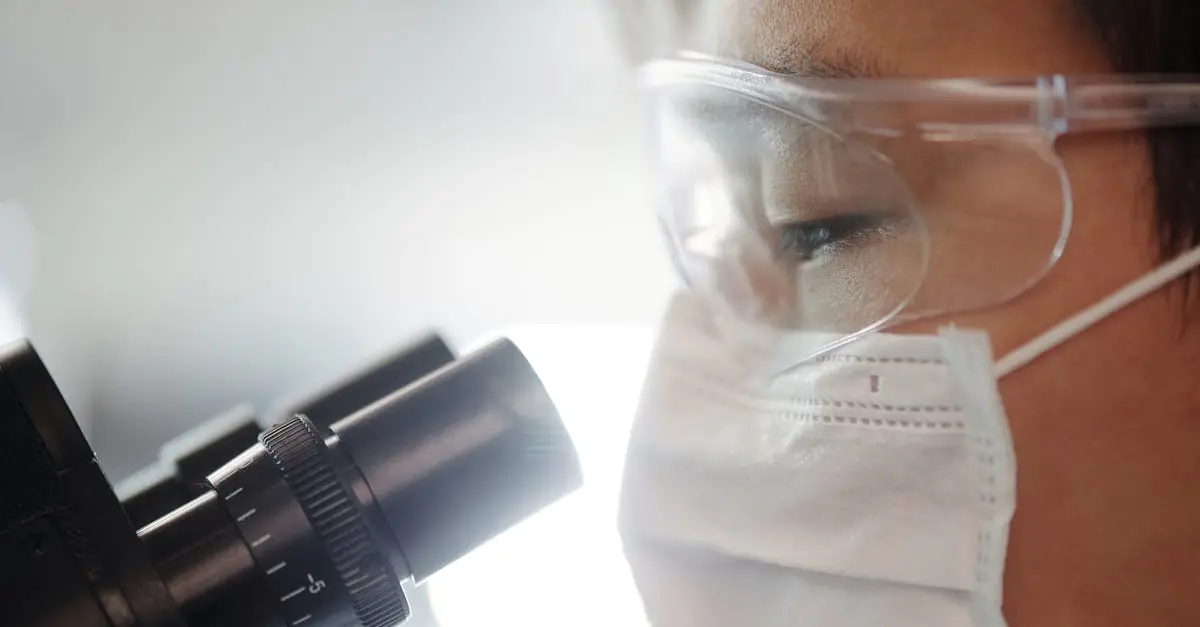In today’s fast-paced healthcare landscape, global medical affairs is the unsung hero, quietly bridging the gap between science and strategy. Picture a group of brilliant minds working tirelessly to ensure that groundbreaking treatments reach patients around the world. It’s like a high-stakes game of chess, where every move counts and the stakes are nothing less than human health.
Table of Contents
ToggleOverview of Global Medical Affairs
Global medical affairs serves as a crucial component in bridging scientific innovation with practical healthcare application. This field ensures that groundbreaking therapies reach patients effectively and safely.
Definition and Importance
Global medical affairs involves the strategic management of scientific information and medical activities. These professionals facilitate the communication of clinical evidence among stakeholders, including healthcare providers and regulatory bodies. Their work is essential for understanding treatment options and navigating regulatory landscapes. In addition, they empower stakeholders with accurate, timely information, fostering trust and transparency in the healthcare sector. The significance of global medical affairs lies in its ability to enhance patient access to innovative therapies and improve health outcomes globally.
Key Objectives of Global Medical Affairs
The primary objective encompasses the dissemination of unbiased, scientifically sound information. They aim to support healthcare professionals by delivering educational resources and clinical data. Another goal includes engaging with key opinion leaders to gather insights and address medical needs. Ensuring compliance with regulations and ethical standards also remains a top priority. Strengthening collaboration between cross-functional teams aids the successful development and implementation of medical strategies. Ultimately, optimizing patient access to new therapies is the driving force behind global medical affairs initiatives.
Role in the Pharmaceutical Industry
Global medical affairs plays a vital role in the pharmaceutical industry, ensuring that innovative therapies are effectively communicated and made available to patients. This sector bridges the gap between scientific research and practical healthcare applications, promoting patient access to revolutionary treatments.
Collaborating with Cross-Functional Teams
Collaboration defines global medical affairs. Teams work closely with clinical development, regulatory affairs, and commercial departments. Each collaboration facilitates a cohesive approach to strategy development. Individuals within these teams align to share insights about patient needs and market trends. They utilize this information to craft educational resources for healthcare professionals. Effective communication among departments enhances the understanding of complex scientific data. Stakeholders depend on clear, accurate messaging to make informed decisions.
Supporting Research and Development
Global medical affairs strongly supports research and development through the dissemination of clinical data. This function ensures that research findings reach the right audience, influencing better treatment strategies. Teams prioritize gathering insights from various stakeholders, driving informed and innovative solutions. Furthermore, they evaluate emerging data to assess the safety and efficacy of new therapies. Timely sharing of this information aids regulatory submissions, expediting the approval process. Global medical affairs thus serves as a crucial component in translating scientific discoveries into practical applications for patient care.
Strategies for Effective Global Medical Affairs
Global medical affairs thrives on strategic planning and execution. Effective strategies enhance operational success in bridging scientific advancements and patient access.
Building a Robust Medical Affairs Team
A dedicated medical affairs team includes members with diverse expertise. Professionals with backgrounds in clinical research, regulatory affairs, and market access bring valuable insights. Collaboration fosters knowledge-sharing, promoting a unified approach to challenges. Regular evaluations of team performance enhance productivity and adaptability. Offering opportunities for professional development keeps team members motivated and engaged.
Developing Training and Educational Programs
Comprehensive training programs empower medical affairs teams with up-to-date knowledge. Workshops and seminars on regulatory changes enrich understanding of compliance requirements. Educational resources for healthcare professionals provide invaluable information on therapies. Leveraging technology, such as webinars and online courses, ensures wide accessibility. Continuous feedback loops improve future training initiatives, tailoring content to meet evolving needs.
Challenges Facing Global Medical Affairs
Global medical affairs encounters several challenges that can impede its effectiveness in addressing healthcare needs. These challenges include regulatory hurdles and navigating cultural differences, each presenting unique obstacles that require strategic solutions.
Regulatory Hurdles
Complex regulations govern the pharmaceutical industry across different regions. These regulations can delay the approval of innovative therapies, impacting patient access and market entry. Global medical affairs teams must stay updated on evolving regulatory requirements. Compliance with local laws and guidelines constitutes a significant challenge as non-compliance can lead to penalties and hinder business operations. Effective communication with regulatory bodies fosters a clear understanding of requirements. Sharing accurate information expedites the approval processes and enables quicker patient access to new therapies.
Navigating Cultural Differences
Cultural differences significantly impact the implementation of medical affairs strategies. Understanding local healthcare practices shapes how information is communicated to stakeholders. Norms for communication, trust-building, and healthcare decision-making vary widely across regions. Global medical affairs teams must develop culturally sensitive strategies to engage healthcare providers effectively. The approach towards educational programs may differ, requiring tailored content that resonates with local audiences. Engaging local experts enhances trust and credibility in the targeted regions. Fostering culturally relevant dialogues bridges gaps and improves collaboration among diverse stakeholders.
Future Trends in Global Medical Affairs
The landscape of global medical affairs is evolving, driven by technology and a deeper understanding of patient needs.
Integration of Technology and Data Analytics
Emerging technologies reshape global medical affairs by providing innovative tools for data management. Advanced analytics enable teams to interpret large datasets, facilitating informed decision-making. Artificial intelligence and machine learning play pivotal roles in identifying market trends and patient insights. These technologies simplify the process of regulatory submissions, ensuring compliance while improving efficiency. Moreover, data visualization tools enhance communication, allowing stakeholders to grasp complex information quickly. Organizations prioritizing these technologies enhance their ability to connect scientific research with patient care effectively.
Focus on Patient-Centric Approaches
Shifting toward patient-centric strategies defines the future of global medical affairs. Proactively gathering patient feedback helps professionals understand treatment experiences and expectations. Engaging patients in clinical trials increases representation and relevance of research, leading to improved therapeutic outcomes. Tailored educational initiatives empower patients with knowledge about therapies and potential side effects. Involving healthcare providers in developing these programs ensures messages resonate with target audiences. Organizations committed to patient-centricity cultivate trust and enhance collaboration among stakeholders, ultimately improving access to innovative therapies.
Global medical affairs plays an indispensable role in the healthcare landscape. By effectively bridging scientific innovation and practical application, it ensures that groundbreaking therapies reach patients in need. The commitment of professionals in this field to foster collaboration and transparency empowers stakeholders with accurate information, ultimately enhancing patient access to new treatments.
As the landscape continues to evolve, embracing technology and patient-centric approaches will be crucial for future success. By prioritizing education and adapting strategies to meet diverse cultural needs, global medical affairs can navigate challenges and drive meaningful advancements in healthcare. This commitment to innovation and collaboration will shape a healthier future for patients worldwide.




